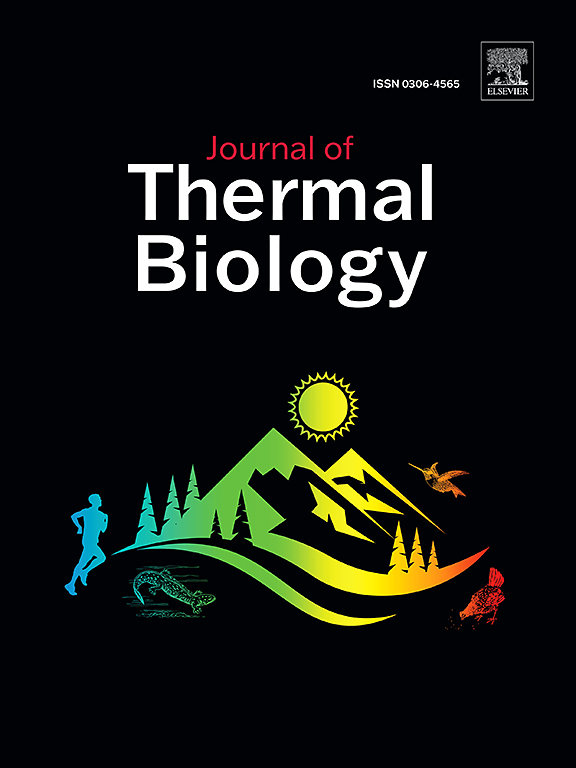Heat stress-induced dysregulation of bovine reproduction: A focus on corpus luteum and progesterone perspectives
IF 2.9
2区 生物学
Q2 BIOLOGY
引用次数: 0
Abstract
Global warming and climate change pose significant challenges to cattle reproduction, with heat stress (HS) emerging as a critical factor contributing to infertility and subfertility in dairy cows. Elevated temperatures in high-producing cattle lead to declines in conception rates and increased incidences of early embryonic loss, thereby undermining the economic sustainability of dairy enterprises. HS induces a cascade of physiological, behavioral, and endocrinological responses, which adversely affect reproductive function, particularly through disruptions in corpus luteum (CL) activity and progesterone (P4) production—both essential for estrous cycle regulation and pregnancy maintenance. Prolonged HS exposure results in suppressed P4 secretion, which compromises the uterine environment necessary for embryo survival. This review examines the mechanisms by which HS impacts CL function and P4 synthesis, contributing to reproductive inefficiencies, and discusses evidence-based mitigation strategies, including environmental modifications, nutritional adjustments, hormonal interventions and genetic selection for thermotolerance. Through these insights, this review aims to highlight effective approaches to enhance fertility, reduce subfertility, and improve reproductive resilience in cattle facing HS-induced stress.
热应激诱导的牛生殖失调:黄体和黄体酮观点的焦点
全球变暖和气候变化给牛的繁殖带来了重大挑战,热应激(HS)成为导致奶牛不育和生育力低下的关键因素。高产牛的温度升高导致受孕率下降和早期胚胎丢失的发生率增加,从而破坏了乳制品企业的经济可持续性。HS诱导一系列生理、行为和内分泌反应,对生殖功能产生不利影响,特别是通过破坏黄体(CL)活性和黄体酮(P4)产生,而黄体(CL)和黄体酮(P4)都是调节发情周期和维持妊娠所必需的。长时间的HS暴露导致P4分泌抑制,从而损害胚胎生存所必需的子宫环境。本综述探讨了HS影响CL功能和P4合成的机制,从而导致生殖效率低下,并讨论了基于证据的缓解策略,包括环境改变、营养调整、激素干预和耐热性的遗传选择。通过这些见解,本文旨在强调面对hs诱导应激的牛提高生育力、降低低生育力和提高生殖弹性的有效方法。
本文章由计算机程序翻译,如有差异,请以英文原文为准。
求助全文
约1分钟内获得全文
求助全文
来源期刊

Journal of thermal biology
生物-动物学
CiteScore
5.30
自引率
7.40%
发文量
196
审稿时长
14.5 weeks
期刊介绍:
The Journal of Thermal Biology publishes articles that advance our knowledge on the ways and mechanisms through which temperature affects man and animals. This includes studies of their responses to these effects and on the ecological consequences. Directly relevant to this theme are:
• The mechanisms of thermal limitation, heat and cold injury, and the resistance of organisms to extremes of temperature
• The mechanisms involved in acclimation, acclimatization and evolutionary adaptation to temperature
• Mechanisms underlying the patterns of hibernation, torpor, dormancy, aestivation and diapause
• Effects of temperature on reproduction and development, growth, ageing and life-span
• Studies on modelling heat transfer between organisms and their environment
• The contributions of temperature to effects of climate change on animal species and man
• Studies of conservation biology and physiology related to temperature
• Behavioural and physiological regulation of body temperature including its pathophysiology and fever
• Medical applications of hypo- and hyperthermia
Article types:
• Original articles
• Review articles
 求助内容:
求助内容: 应助结果提醒方式:
应助结果提醒方式:


